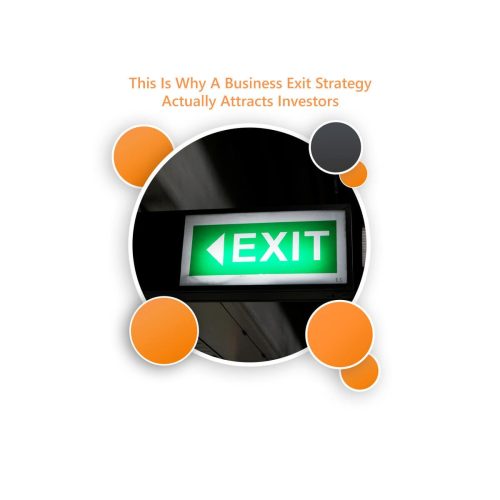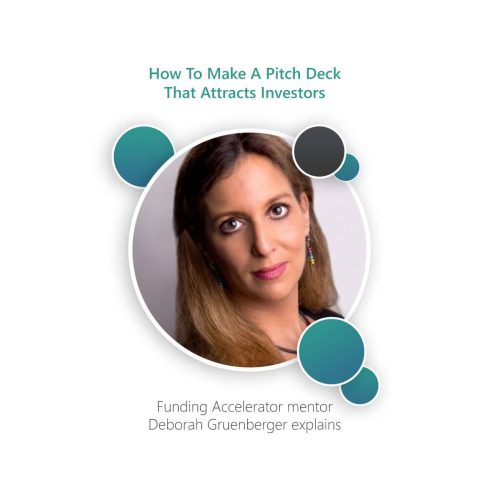Securing investment isn’t just about having a brilliant idea or a revolutionary product. It’s about proving your business is worth backing. Investors want to see that your venture has the potential to grow, scale, and bring in a solid return on their investment. Recently, we had the privilege of sitting down with Funding Accelerator mentor Elliott Gaspar, a seasoned expert in startup valuations, to uncover what really moves the needle when it comes to maximising your business valuation and making investors sit up and take notice. In this article, we’ll dive deep into the strategies and insights that can help you improve your company’s valuation and get noticed by investors.
Why Valuation Matters More Than You Think
When preparing for fundraising, your valuation isn’t just about securing the highest possible number; it’s a crucial sense check. It sets realistic expectations for both you and potential investors, ensuring that you enter discussions with a clear and grounded understanding of what your business is worth. At the end of the day, valuation is determined by what you’re willing to give up in equity in exchange for the funds you need to grow. If there’s a significant gap between your expectation and the investor’s perception, say, you believe your business is worth £30M while they see it as £10M, finding common ground becomes challenging. But if the difference is smaller, a deal is much more likely to be reached.
Valuation is both an art and a science, influenced by multiple factors that shape how investors perceive your business. Setting it too low could invite opportunistic investors who may not have your best interests at heart, while setting it too high can signal a lack of market awareness, making investors walk away in search of more reasonable opportunities. Striking the right balance is key, not just to raising capital but also to attracting investors who understand your vision and can contribute more than just money, bringing strategic value and expertise to the table.
The Mistakes That Could Be Holding You Back
It’s easy to think that a good idea or a strong product will be enough to secure investment, but many entrepreneurs unknowingly make mistakes that hurt their business valuation. Elliott flagged several common mistakes that can significantly impact how investors perceive your business.
- Focusing only on revenue Many founders are laser-focused on showing current revenue figures to demonstrate the success of their business. While revenue is important, it’s not the only metric that investors care about. Investors want to see your business’s scalability and long-term sustainability, not just the numbers for today. They’re looking at your ability to grow in the future and capture a larger market share. Don’t just talk about how much you’re making now—focus on the opportunity for future growth.
- Overlooking the team A great product or idea isn’t enough. Investors are ultimately backing the team behind the idea, as they want to see a capable, experienced group of individuals who can execute the business plan. A strong team provides the confidence that the business will be able to weather the ups and downs of the entrepreneurial journey and scale effectively. If your team is lacking key skills or experience, you’ll need to highlight how you plan to fill these gaps.
- Lack of a clear growth strategy Even if your business is profitable today, it won’t necessarily make it easy to secure investment. Investors want to see a clear, realistic plan for how you intend to scale. A business that is profitable but stagnant may be a risky investment. A well-defined growth strategy demonstrates to investors that you’re prepared for the next stage of development. You should clearly articulate how you plan to expand, whether that’s through new products, entering new markets, or scaling your operations.
Elliott Gaspar’s Expert Tips for Strengthening Your Valuation
Ready to boost your company’s valuation and make your business more attractive to investors? Elliott Gaspar’s offered his expert tips for maximising your business valuation:
- Show consistent traction Investors want to see that your business isn’t just a flash in the pan. They’re looking for proof that your business is gaining traction over time. This could be in the form of growing revenue, increasing customer acquisition, expanding market share, or other metrics that demonstrate a strong, upward trend. Consistency is key—show that your business is steadily moving in the right direction, and you’ll stand out from other startups.
- Highlight market potential One of the most important things investors want to know is whether there’s room for growth in your market. How big is your opportunity? Scalability and demand are crucial to building investor confidence. If your market is small or saturated, it might be harder to secure investment. Show that your business operates in a high-growth market with plenty of room for expansion, and you’ll prove that your venture has the potential for significant returns.
- Stand out from the competition It’s important to differentiate your business from competitors. What makes your company unique, and why should investors back you over others? Whether it’s your innovative product, your go-to-market strategy, or your team’s expertise, identify what gives you an edge and emphasise this to investors. A clear competitive advantage will make your business more appealing and help investors feel confident that you’ll succeed where others might fail.
- Get your financials in order. Investors need to see clear, well-documented financial projections that demonstrate your business’s future viability. This includes revenue projections, cash flow, and an understanding of your costs and margins. Being able to present realistic, well-researched financials that align with your growth plans will build investor trust and reduce concerns over the risk of your business.
- Surround yourself with the right team. Investors aren’t just backing an idea—they’re backing the people behind it. The strength of your team can make or break your valuation. Focus on attracting experienced, talented individuals who can help execute the business plan and scale the company. If your team is strong, investors will feel more confident in your ability to achieve your goals and maximize the business’s potential.
What Investors See as Red Flags
It’s crucial to understand what investors are looking for—and what they’re avoiding. They’re trained to spot potential risks that could impact your valuation or make your business a risky investment. Some of the biggest warning signs include:
- Unrealistic financial forecasts Investors have seen it all before—overly optimistic financial projections that don’t align with reality. If your financial numbers don’t add up or seem too good to be true, investors will immediately be suspicious. Make sure your forecasts are based on realistic assumptions, and be ready to justify your projections with hard data and a clear explanation.
- An unclear business model If you can’t clearly articulate how your business makes money, investors won’t feel confident in your ability to generate returns. Having a solid business model—whether that’s through direct sales, subscription fees, or other revenue streams—is essential for attracting investors. If they can’t quickly understand how you’re making money, they’ll likely move on to the next opportunity.
- Founder misalignment Investors want to see that the team is aligned, committed, and passionate about the company’s mission. If there are issues between the founders or misalignments in strategy, it will raise red flags for investors. A divided team can cause operational inefficiencies and make investors nervous about the future of the business.
- Burning through cash without results A high burn rate with little to no traction is a major concern for investors. If your business is spending too much money without seeing significant results, it signals poor financial management and lack of progress. Investors want to know that their money will be spent wisely and that you’re on track to achieve meaningful growth.
Final Takeaway
Maximising your business valuation isn’t about inflating numbers or talking a big game. It’s about building a credible, scalable business that investors can trust. Focus on the key areas that matter—traction, market potential, financial clarity, and team strength—and you’ll put yourself in the best position for a successful fundraiser. Remember, investors are looking for businesses that can grow, scale, and deliver strong returns, so position your business to highlight these qualities.
Looking to raise investment? Make sure you’re investor-ready by applying these insights—and if you need expert guidance on how to maximise your business valuation, join one of our free, online Funding Strategy Workshops here.
- Founders’ Negotiation Tactics: How To Secure The Best Startup Valuation - May 12, 2025
- How To Master Your Sales Lifecycle: Close Deals Faster And Smarter - April 30, 2025
- How To Maximise Your Business Valuation And Attract Investors - April 7, 2025



















